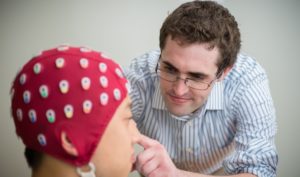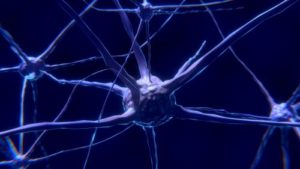
African American Mindfulness Researchers Make Vital Contributions
The growing recognition of transdisciplinarity’s powerful nature offers researchers valuable opportunities for collaboration

Mindful Self-Compassion (MSC)
Mindful Self-Compassion, also known as MSC, is an evidence-based group training that was developed originally by Christopher Germer, PhD (clinical psychologist, Harvard Medical School) and Kristin Neff, PhD (developmental psychologist, University of Texas, Austin). Inspired by research studies showing that self-compassion is consistently associated with health and wellbeing, MSC was designed to help people become more self-compassionate. MSC is “mindfulness-based self-compassion training” and is complementary to the MBSR training. Based on Kristin Neff’s definition of self-compassion, MSC specifically teaches mindfulness versus overidentification, common humanity versus isolation, and self-kindness versus self-criticism. By becoming more self-compassionate, participants find it easier to manage difficult emotions and make positive changes in their lives.
Course Format: The MSC program follows a manualized protocol described in Teaching the Mindful Self-Compassion Program (Germer & Neff, 2019). The Mindful Self-Compassion Workbook (Neff & Germer, 2018) is used by participants in conjunction with MSC. MSC is an 8-week, 9-session program with 24+ hours of direct classroom content, and is taught in-person or online. The first two sessions introduce participants to mindfulness, self-compassion and the program itself, especially by embracing each participant’s unique identities. In session 3, participants start to warm up their awareness with loving-kindness practice. Sessions 4-7 teach participants how to be self-compassionate when they encounter challenging situations such as difficult emotions and relationships. Session 8 shows participants how to savor the positive aspects of our lives. MSC includes 7 formal meditations, 20 informal practices, and 14 class exercises. Graduates of MSC are encouraged to continue to practice self-compassion in whatever form is most meaningful to them and to stay connected with the global community of practitioners.
“By cultivating warmth and goodwill towards ourselves when we struggle, fail or feel inadequate, we feel safer and more connected to ourselves and others, which enhances our awareness, helps us make better decisions, motivates us to live in accord with our core values, and allows us to be more fully human.”
Instructor Requirements: Similar to other mindfulness-based programs, there is a formal teacher training process with certain prerequisites, including an established mindfulness practice of at least 2 years, participation in a MSC class, a silent meditation retreat, and previous experience teaching meditation in groups. MSC teacher training is coordinated through the Center for MSC and includes 3 steps: a teacher training course (in-person or online), an online teacher practicum, and online group consultation while teaching one’s first class. While teaching MSC, teachers are required to have a personal mindfulness and self-compassion practice, and they are strongly encouraged to continue evolving as teachers through engagement with the global community of MSC teachers.
Course Outcomes: MSC was designed to develop the inner resource of self-compassion. According to empirical studies, MSC participants report increases self-compassion, compassion for others, mindfulness, happiness, and life satisfaction, and reductions in stress, anxiety and depression.
Clinical Populations: Although MSC was developed for the general population, it has also been adapted for clinical populations. For example, among people suffering from chronic pain, MSC enhanced pain acceptance and reduce pain interference compared to cognitive behavioral therapy. In a sample of diabetics, MSC reduced distress about diabetes-specific distress and glucose levels. An adaptation of MSC for healthcare providers reduced secondary traumatic distress and burnout. MSC adapted for adolescents enhanced social connection and reduced anxiety. Participants must be aware that self-compassion training can activate old emotional wounds. MSC teachers are committed to helping participants feel safe and comfortable during the course, but participants need to take primary responsibility for their own wellbeing.

Chris Germer, PhD is a clinical psychologist and lecturer on psychiatry (part-time) at Harvard Medical School. He co-developed the Mindful Self-Compassion (MSC) program with Kristin Neff in 2010.

The growing recognition of transdisciplinarity’s powerful nature offers researchers valuable opportunities for collaboration

Does the scientific content that we read always mean what it claims?

The growing recognition of transdisciplinarity’s powerful nature offers researchers valuable opportunities for collaboration

Mindfulness practices like critical analysis can reveal the mental formations behind these tools.

By providing an immersive, engrossing, and controlled visual and auditory experience in which participants can practice mindfulness techniques, Virtual Reality (VR) systems can create immersive, ecologically valid, first-person experiences that can even tap into physiological reactions that align with real-world experiences.

The researchers were interested in understanding if forgiveness acts as a mechanism by which mindfulness relates to relationship satisfaction. They speculated that being mindful would allow individuals to be aware of their own and their partners’ emotions in a non-judgmental and non-reactive way. The increased awareness would make people more forgiving of partner transgressions, thereby enhancing relationship satisfaction.

Emerging studies are highlighting the effectiveness of mindfulness, gratitude and hopefulness as positive psychological tools in helping people cope with anxiety and stress. These practices have also been considered beneficial in enhancing psychological health and well-being.

After nearly three decades, a ban prohibiting public schools to offer yoga as an elective for grades K-12 has been overturned in Alabama.

Rather than proposing a single definition, mindfulness might be better understood in relation to the phenomenology of the various contemplative traditions and practices that intend to develop mindfulness.

Ruben Laukkonen is a cognitive neuroscientist at the VU University of Amsterdam. His research focuses on sudden insight experiences and the effects of intensive meditation on the mind and brain. Using a combination of neuroimaging, machine learning, and neuro-phenomenology, Ruben is investigating some of the most rare states of consciousness accessible to human beings. He has published articles in leading journals, given talks at prestigious conferences, and has written on topics that range from artificial intelligence to psychedelics. Ruben has an eclectic contemplative background, including different meditation traditions such as Zen, Advaita, and Theravada.

Despite significant advances in the field of psychology due to increased research … the usual care of people with chronic medical conditions still often neglects the psychological issues associated with the physical dimension of the disease.

Despite growing knowledge that mindfulness meditation can enhance emotional wellbeing, very little is known about how it all works. How exactly does the act of meditation help us deal with the emotional rollercoaster of everyday life? Is mindfulness training actually “transferrable” to real world situations? What’s going on in the brain? Can we even measure it?

“We focus on concentration,” Jones says. “So rather than sharpening your focus, which is what happens when you get anxious, the goal is to relax your focus.” The ability to utilize your breath to calm your nervous system is the first step to teaching mindfulness.

How does self-compassion protect depressed adolescents? Quieting the self may be the key.

A study led by Alexandra Martelli investigated whether more mindful individuals (based on self-report measure scores) would respond to social rejection with less distress and if certain neurological mechanisms in the brain’s prefrontal cortex can potentially explain the role of mindfulness in reduced social distress.

A research team from Valencia, Spain recently investigated the effects of a brief mindfulness-based intervention on both mood and biological markers on a sample of health professional students.

A new study by Kim and colleagues explored how compassion-based training can affect two self-regulatory styles and its relationship to neural, physiological, and behavioral responses.

Torre and colleagues recruited 70 HCWs from two hospitals in Rome, Italy for a 4-week course in yoga and mindfulness.

A team of researchers based in the perceived epicenter of the virus, Wuhan, China, recently tested whether a brief mindfulness intervention delivered through an app could be effective for reducing anxiety and protecting nightly sleep during the unfolding pandemic.

Mindfulness practices can enhance a therapist’s ability to intentionally and flexibly regulate attention as well as emotional reactivity which has been demonstrated to influence burnout.

A new study investigated whether a brief mindfulness training designed to reduce physician burnout could be delivered through a smartphone app.

The current study reviewed the wider scientific literature for the role of yoga and mindfulness interventions in the treatment of severe mental illness.

The amount of research involving mindfulness interventions has grown exponentially; however, only in the last decade has mindfulness research involving adolescents rapidly increased.

Mindfulness and self-compassion are theorized to disrupt the maladaptive repetition of negative thoughts and emotions for patients with chronic or mental illnesses, who are particularly susceptible to psychosocial distress.

According to the Association for Mindfulness in Education, mindfulness can increase students’ emotional regulation, social skills, self-esteem, and organizational capacities.

There is promising evidence that 70% of smokers would like to quit but less than 5% of unassisted attempts at quitting are actually successful.

In a recent pilot study by Suzette Glasner, Ph.D. and her team at the Integrated Substance Abuse Programs at the David Geffen School of Medicine at UCLA, they evaluated the effects of Mindfulness-Based Relapse Prevention (MBRP) on reducing relapse susceptibility among stimulant-dependent adults receiving a contingency management (CM) intervention.

A major implication of the study suggests the distal effects of intensive retreat practice on respiration rates, a benefit not necessarily conferred by a brief, but full-day meditation session.

Researchers are exploring mindfulness-based interventions as a long-term treatment options to address the multitude of symptoms after cancer has been treated.

While the scientific study of mindfulness has exponentially increased over the past few decades, only recently has the scientific community focused on the effects of meditation training on biological aging.
Tell us about your idea. Nearly any subject related to the science of mindfulness is fair game.